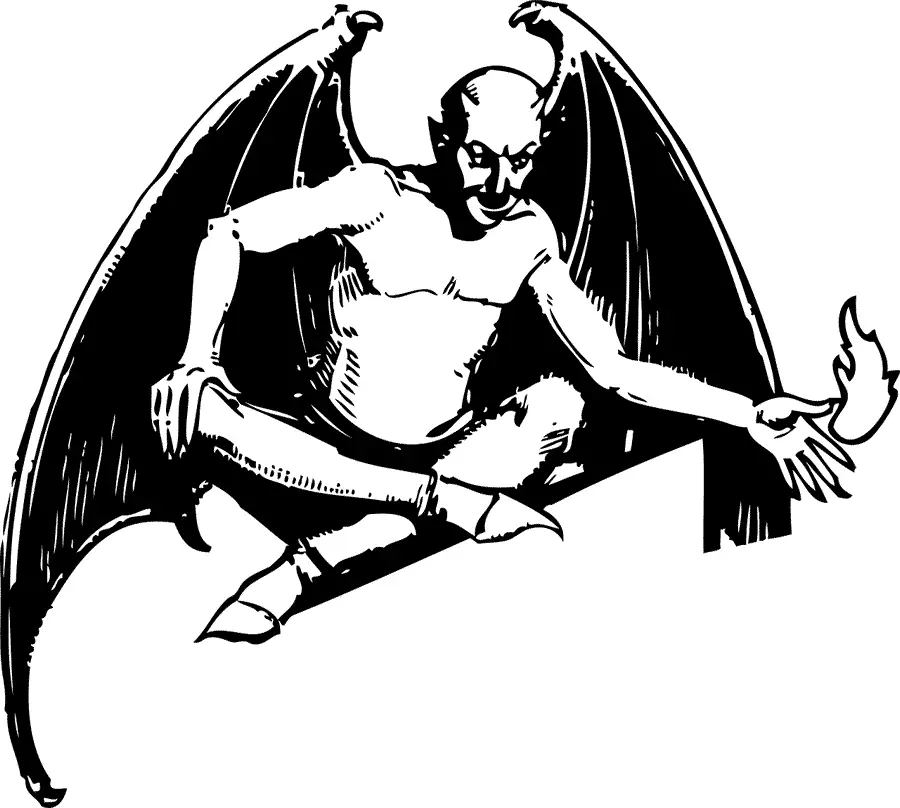Table of Contents
What Does “Devil-May-Care” Mean?

Definition:
When someone is described as having a devil-may-care attitude, it means they are cheerful, carefree, reckless, and defiant. This phrase often characterizes individuals who act without concern for consequences, embracing a bold or nonchalant approach to life.
Synonyms:
The following words capture similar meanings to the idiom devil-may-care:
- Reckless
- Careless
- Easy-going
- Happy-go-lucky
- Heedless
- Imprudent
- Rash
- Incautious
Similar Phrases or Expressions
The devil-may-care attitude is just one of many colorful idioms in the English language that describe carefree or reckless behavior. Here are some similar expressions:
- Throw caution to the wind
- Meaning: To act recklessly or without worrying about the consequences.
- Example: She decided to throw caution to the wind and quit her job to travel the world.
- Live fast and die young
- Meaning: To live a wild, reckless life without concern for the future.
- Example: He adopted a live-fast-and-die-young mentality, partying every night and ignoring responsibilities.
- YOLO (You Only Live Once)
- Meaning: A modern phrase encouraging people to take risks and enjoy life without overthinking.
- Example: I know it’s risky, but YOLO—let’s go skydiving!
- Fly by the seat of one’s pants
- Meaning: To act impulsively or without a plan.
- Example: He doesn’t prepare for meetings; he just flies by the seat of his pants.
- Hell for leather
- Meaning: To do something at full speed or with maximum effort, often recklessly.
- Example: They rode hell for leather to reach the finish line before sunset.
- Live on the edge
- Meaning: To live dangerously or take risks.
- Example: She’s always lived on the edge, seeking thrills and adventures.
- Carefree as a bird
- Meaning: To be completely free of worries or responsibilities.
- Example: After retiring, he felt as carefree as a bird, traveling wherever he pleased.
- Throw it all to the wind
- Meaning: To abandon all caution or responsibility.
- Example: Frustrated with his job, he threw it all to the wind and moved to a remote island.
These expressions, like devil-may-care, capture the spirit of living boldly, recklessly, or without concern for consequences. They add color and depth to the English language, allowing speakers to convey nuanced attitudes and behaviors.
Origin of the Idiom “Devil-May-Care”

The idiom is a shortened form of the expression: “The devil may care, but I do not.”
The phrase is believed to have originated in the 18th century. One of the earliest recorded uses appears in a 1775 poem by Philip Morin Freneau, titled “The Expedition of Timothy Taurus, Astrologer.” The idiom is found in the following lines:
‘Tis certain he went, but certainly where
I cannot inform, and the devil may care.
Another notable early use of the expression is found in Charles Dickens’ “The Pickwick Papers,” published in 1837. In Chapter 29, Dickens writes:
“…and I once had the honour of being on intimate terms with a mute, who in private life, and off duty, was as comical and jocose a little fellow as ever chirped out a devil-may-care song, without a hitch in his memory, or drained off a good stiff glass without stopping for breath.”
The reference to the devil in this idiom may stem from the idea that individuals with a devil-may-care attitude are so indifferent to consequences that even the devil—a figure often associated with mischief and recklessness—might be the only one who cares about their actions.
Examples of Usage
- He has a rather devil-may-care attitude toward his wife’s illness.
- Her tragic death can be attributed to her devil-may-care approach to life.
- He is a devil-may-care boy, always seeking adventure without a thought for the risks.
This idiom is often categorized under themes of religion or recklessness, reflecting its historical and cultural connotations.
This idiom is in the religion category.


